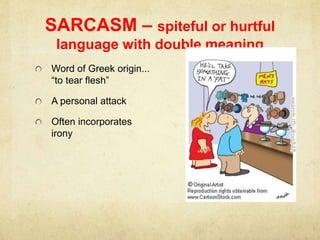Satire, as a potent tool of social commentary, has long been a fixture in the landscape of comedy, wielding the dual power to entertain and provoke reflection. Among the pantheon of satirical works, “The Simpsons” stands as a towering figure, having deftly blended humor with critique for over three decades. This animated series, with its vivid portrayal of a dysfunctional yet endearing American family, has not only captured the zeitgeist of contemporary society but has also wielded significant influence over the evolution of modern comedy. By dissecting the absurdities of everyday life, politics, and cultural norms, “The Simpsons” has set a benchmark for satirical content, inspiring a generation of comedians and writers to explore the boundaries of humor as a vehicle for societal reflection. This article delves into the mechanisms of satire within “The Simpsons,” examining how its incisive wit and sharp observations have shaped comedic narratives and sensibilities in today’s entertainment landscape. Through a critical lens, we will explore the enduring impact of this iconic series, tracing its influence on both the comedic form and its audience’s perception of the world.
Satirical Techniques and Cultural Commentary in The Simpsons
The enduring success of The Simpsons largely stems from its adept use of satirical techniques to critique societal norms and cultural phenomena. By deploying irony, exaggeration, and parody, the show has been able to present biting cultural commentary that resonates with audiences across generations. Its satirical lens often focuses on the absurdities of the American family, politics, and media, transforming seemingly mundane scenarios into profound critiques of societal structures. For instance, the character of Homer Simpson embodies the quintessential “everyman,” whose obliviousness and blunders highlight the pitfalls of consumer culture and the flaws within the nuclear family archetype.
The Simpsons also employs hyperbole and juxtaposition to expose the contradictions and hypocrisies of modern life. The exaggerated portrayal of Springfield’s citizens serves as a microcosm for broader societal issues, allowing the show to address topics such as environmental neglect, corporate greed, and political corruption with a comedic twist. By using these techniques, the show not only entertains but also encourages viewers to reflect on their own beliefs and behaviors. The following elements are frequently utilized to craft its sharp social commentary:
- Satirical Characters: Each character often embodies exaggerated traits that critique real-world archetypes.
- Subversive Humor: Jokes that challenge authority and question societal norms.
- Topical References: Incorporation of current events and trends to remain relevant and insightful.

Influence of The Simpsons on Contemporary Comedy Landscape
The satirical prowess of The Simpsons has carved an indelible mark on the contemporary comedy landscape, serving as a blueprint for countless modern shows. Its unique blend of humor, cultural commentary, and biting satire has set a standard for what it means to entertain while simultaneously holding a mirror to society. By deftly weaving in social and political issues, the show has influenced a generation of comedy writers and performers who now strive to blend humor with critique in their own work.
- Character Archetypes: The creation of iconic characters such as Homer and Bart has paved the way for similar archetypes in modern sitcoms, allowing writers to explore complex themes through seemingly simple personas.
- Storytelling Techniques: The use of non-linear storytelling and meta-humor has been adopted by shows like Family Guy and Rick and Morty, which owe much of their narrative innovation to The Simpsons.
- Social Commentary: The show’s ability to satirize societal norms and political issues has inspired other creators to infuse their comedy with a layer of critical observation.
In essence, the satirical lens of The Simpsons has not only entertained millions but also inspired a cultural shift in how comedy is perceived and created, encouraging a more nuanced and reflective approach to humor in today’s media.
Examining the Role of Humor in Social Critique
The essence of humor in social critique is vividly captured in the long-running animated series, The Simpsons. This show has masterfully used satire as a tool to reflect and critique societal norms, politics, and cultural phenomena. By blending humor with insightful commentary, it manages to engage audiences while prompting them to reflect on real-world issues. Satire allows the show to broach sensitive topics in a manner that is both entertaining and thought-provoking, making it an effective medium for social commentary.
- Exaggeration and Irony: These are key elements in the show’s approach to humor. By amplifying everyday situations to absurd levels, it highlights the ridiculousness inherent in many societal conventions.
- Character Archetypes: The diverse cast of characters, each representing different societal roles and stereotypes, provides a canvas for exploring a wide array of social issues.
- Subversion of Expectations: Often, the show leads viewers to anticipate a familiar outcome, only to subvert it in a way that challenges preconceived notions and encourages critical thinking.
This clever use of satire not only makes The Simpsons a staple of modern comedy but also influences other comedic works, encouraging them to adopt similar techniques to critique society. As humor continues to evolve, the role of satire in social critique remains a powerful tool in the comedic arsenal.
Recommendations for Integrating Satire in Modern Comedy
To successfully integrate satire in modern comedy, creators should aim for a balance between wit and accessibility. While satire often requires a level of intellectual engagement from the audience, it should also resonate with a broad demographic. This can be achieved by anchoring satirical elements in universally relatable themes, as seen in the enduring appeal of “The Simpsons.” The show’s clever use of cultural references and parody provides multiple layers of humor, inviting both casual viewers and those with a keen eye for detail to appreciate its nuances.
In crafting effective satire, it’s crucial to maintain a sharp focus on social commentary without losing the essence of entertainment. Here are some recommendations to consider:
- Understand your audience: Tailor satirical content to the cultural and social context of your viewers to enhance relatability.
- Blend satire with character development: Create multidimensional characters that embody satirical elements, much like the iconic residents of Springfield.
- Use humor as a vehicle for critique: Leverage comedy to challenge societal norms and provoke thought, ensuring the message is as compelling as the punchline.
